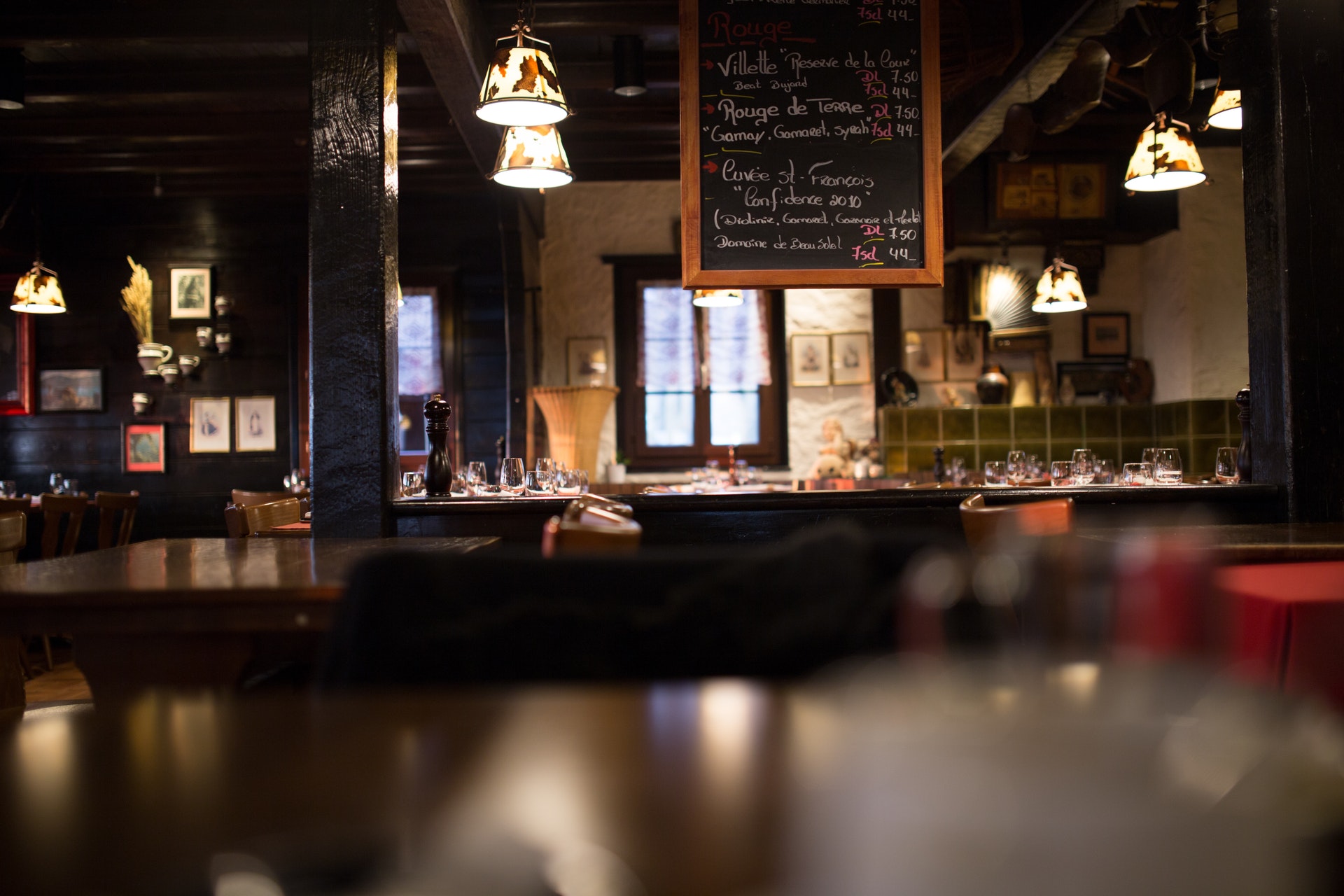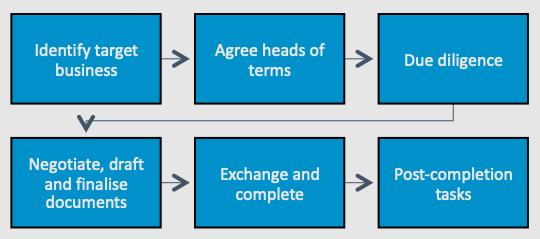
How To Acquire A Public House
There are a variety of ways in which a public house (commonly referred to as a pub) can be purchased and this blog will act as an easy to follow guide to assist you through every step of the acquisition process. We also explain several key points of action and how these steps can help you complete your pub acquisition in an efficient and cost-effective manner.
Process for acquiring a pub
- Identifying the target business
Finding the pub that you wish to acquire is the first point of action for a prospective buyer, and is often achieved by speaking with a broker specialising in the sale of pubs and restaurants or through speaking with individuals who are already in the industry. - Agree heads of terms
It is important that you clearly outline your position to the vendor from the outset. This will enable you to negotiate the terms of sale in an efficient manner and reduce the likelihood of a dispute over key commercial terms from arising further down the process.We recommend that you agree on the basic terms of the acquisition, such as the purchase price, length of the lease etc., with the vendor as soon as possible. Although the heads of terms are not usually legally binding, this activity will help to flush out any potential issues at an early stage and before either party has invested too much time and money into the process.It is important that you seek legal advice when negotiating and agreeing on the basic terms of the transaction in order to ensure that you fully understand the consequences of what you are agreeing to and avoid any potential pitfalls that you may not be aware of. This will also reduce the risk of a potential dispute over key terms from arising later on in the transaction which could jeopardise the transaction. - Due diligence
Due diligence is a fundamental part of the acquisition process, especially from the buyer’s perspective. Conducting effective due diligence will enable the buyer to identify any potential issues with the target business which could result in re-negotiating the purchase price or asking the vendor to provide a suitable indemnity or obtain relevant insurance. The level of due diligence required will depend on the facts of the transaction, but all transactions involving the acquisition of a pub will usually include examining the following:(a) Landlord’s title to the pub: It is important to establish that the vendor has the right to sell the pub and their title to the land. This will also reveal any restrictive covenants, such as not being able to use the land as a restaurant or having gambling operations (i.e. slot machines), and what activities are therefore permitted on the property.(b) Property review: It would be prudent for the buyer to instruct a surveyor to inspect the property and ascertain if there is any damage or maintenance work is required or will be required in the near future. This is important because the property and any unidentified issues (with a few exceptions) will normally be the responsibility of the buyer post-completion.As well as examining the physical property, the buyer should ensure that the property has all of the necessary licences, such as an alcohol license, and that the property complies with the necessary environmental and local regulations.(c) Financial accounts: The buyer should instruct an accountant with experience in valuing licensed properties to review the target business’ audited accounts for the last three years to gain an understanding of the business’ performance. The solicitor acting for the buyer on the acquisition will usually be able to refer the buyer to a suitably qualified accountant whom they have worked with previously.If the buyer identifies or becomes aware of any issues or potential issues during the due diligence process then they can either ask the vendor to rectify the issue prior to completion, ask the vendor to provide an indemnity or obtain indemnity insurance to cover the risk or re-negotiate the purchase price or other terms of the deal. - Finalising transaction documents
Alongside the due diligence process each party’s respective solicitors will be liaising with each other to negotiate, draft and then finalise the transactional documents. The terms of these documents will vary from one deal to another and will also be influenced by what comes to light during the due diligence process. Once all of the documents are in agreed form and the buyer’s funds are in place then the parties are ready to exchange and complete (which may be on separate dates or simultaneously) on the acquisition of the pub. - Completion
Exchange and completion of the pub will typically involve the buyer’s solicitor transferring the deposit or all of the completion monies to the vendor’s solicitor and circulating their client’s signed and undated documents. The legal interest in the pub usually transfers from the vendor to the buyer on completion.

Common issues that arise during the acquisition of a pub
- Licensing:
The property will require multiple licences, including a premises licence and personal licenses for the sale of alcohol and for playing music. The pub will not be able to function as intended without these licences. The buyer’s solicitor should check the conditions of the licences attached to the premises and advise you if they may cause issues with your plans for the business. - Employees:
The pub’s employees retain their employment rights when the business is transferred from the vendor to the buyer under the Transfer of Undertakings (Protection of Employment) Regulations 2006. The employees will therefore become the responsibility of the buyer as at completion so it is important to review each employee’s contract of employment and identify any liabilities that the buyer may be acquiring. - Health and safety:
To avoid disruption to your business in the future it is advisable for the buyer to analyse the health and safety aspects of the premises. This would involve assessing issues, such as fire safety and asbestos, and obtaining reports that confirm that the premises satisfies the relevant regulations and health and safety standards. At a bare minimum, the buyer should obtain a copy of the latest Fire Safety Assessment and Fire Safety Report from the vendor. - Tied pubs:
The buyer should also consider whether the target pub is tied to a specific brewery or supplier. Tied pubs are usually subject to strict requirements which are set by the brewery or supplier, such as a lease produced by the brewery and that the pub must only purchase alcoholic beverages from a certain brewery and in predetermined quantities. This could have an adverse impact on the buyer’s pricing model and licences attached to the premises, which may lead to the buyer feeling like they are running the pub for the benefit of the brewery rather than their own.
How can we help?
We understand that buying or selling a business such as a pub can often appear complicated and daunting. Our corporate team has extensive experience in advising buyers and vendor’s, from sole traders to national companies, on the acquisition or disposal of businesses in a variety of different sectors.
We can assist you from the beginning to the end of the process by producing robust heads of terms, managing the due diligence process, negotiating and drafting all transactional documents, identifying and advising on risk/potential issues, handling exchange and completion and then attending to post-completion tasks. We also work closely with accountants and tax specialists who have significant experience in advising buyers and vendors on the acquisition or disposal of businesses.
Please click here to download a free Heads of Terms template. If you would like to contact us to learn more about our firm, how we can help you and learn more about the process in more detail then please contact us to arrange a free no obligation 20 minute phone call.
This article is intended for general information only, applies to the law at the time of publication, is not specific to the facts of your case and is not intended to be a replacement for legal advice. It is recommended that specific professional advice is sought before relying on any of the information given. © Jonathan Lea Limited.
